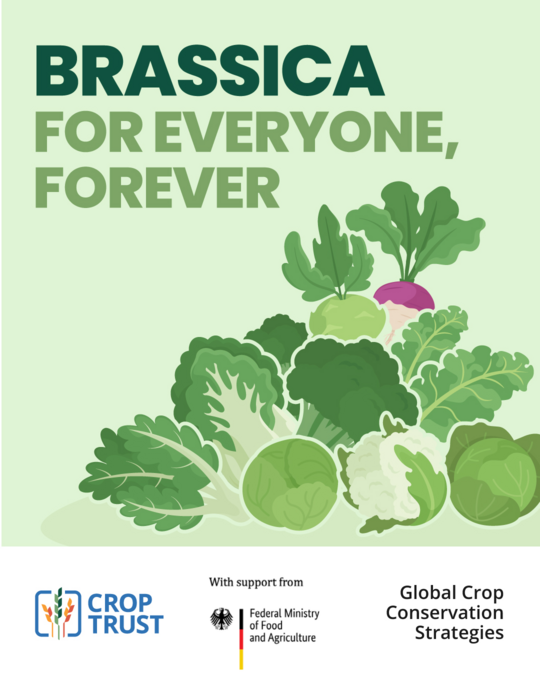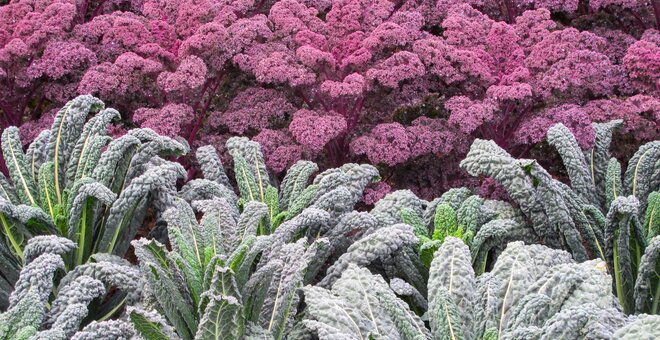The Crop Trust, along with its strategic partners, is developing conservation strategies to protect the genetic diversity of the world’s food crops. This initiative is funded by the German Federal Ministry of Food and Agriculture (BMEL).
Cabbage, kale, turnip, mustard, broccoli, cauliflower and pak choy are among the most widely cultivated vegetables in the world.
They all belong to a family known as Brassica crops.
There are around 40 species in the Brassica genus, but only six varieties are cultivated on a large scale worldwide.
Given the wide variety of forms, Brassica species have many uses. Some varieties are grown as vegetables, fodder crops or for use in cosmetics and medicine. Rapeseed is the second most used source for producing vegetable oil for food and biofuel.
But the diversity of Brassica plants and their wild relatives is in decline.
A global crop conservation strategy developed by the Crop Trust and our partners ensures that the widest variety of Brassica is safely conserved so that future generations can enjoy them forever.
Did you know?
- Brassicas are significant crops, both agriculturally and economically.
- They are cultivated as vegetables, condiments and oilseeds.
- Examples include cabbages, cauliflowers, turnips, pak choy, mustards and rapeseed.
- Different varieties of rapeseed yield oils suitable for consumption, biofuel, lubricants, and other industrial and pharmaceutical products.
- An additional and growing use is as a biofumigant crop, offering another means of managing agricultural pests and diseases.
- In terms of vegetable oil production, rapeseed is the second largest source globally, second only to soybean.
- Brassica crops are grown on every continent due to their diversity of form and collective ability to tolerate a wide range of environmental conditions.
- The genus Brassica is part of the Brassicaceae, a diverse and species-rich family with about 3,700 species.
Related stories about Brassicas
From Broccoli to Pak Choy: Brassicas Need a Global Network
To some people, broccoli is like math: You’re pretty sure that you won’t enjoy it, so you assume that you need to sugar-coat it – or, rather, cheese-coat it – for it to become somewhat palatable.
But what if we were kinder to...
19 Jul 2023


